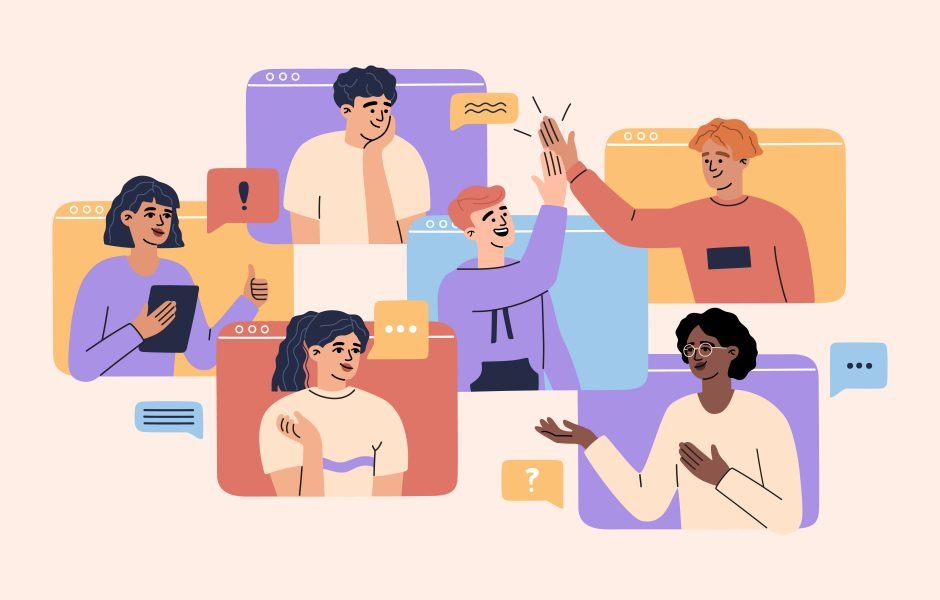Five Fundamental Rules You Can't Afford To Ignore When It Comes To Interpreting
Note: This article is addressing ASL interpreting and is intended for hearing people who work with interpreters in any setting. Through experience, research and collaboration with the Access Simplified team, five fundamental rules you can’t ignore are here to help. And off we go …
ASL interpreting is not merely the art of ‘flapping hands’, as hearing people often say to interpreters. Interpreting is wrapped with linguistic nuances, ethics, expectations, processing time, language equivalency and targets as the interpreter jumps from one language into another trying to navigate the continuum of time, space, audience, intention, etc, not to mention a whole host of other critical components. What the hearing participant actually sees in action is a very small part of the interpreter’s ongoing mental, physical and emotional interpreting process.
So what are five fundamental rules you can’t ignore when it comes to interpreting?
1. Understand that there are complexities within ASL interpreting. Why is this first on our list? Well because of that endearing term ‘flapping hands’ that interpreters are greeted with quite often. So in order to start understanding the complexities, re-read the first paragraph above again. The term ‘flapping hands’ not only discounts the intricate interpreting process, it also discounts the language used by millions of Deaf individuals. ASL incorporates linguistic properties, timelines, non-manual markers, grammar, cultural meanings and influences, etc. The language itself is as intricate and detailed as any other language. And it is, in fact, very complex.
Now let’s add in the process of interpreting or going from one language to another. It is critical to remember that the interpreter is now carefully navigating TWO languages with each their own complexities, rules, cultures, etc. So whether you understand the actual complexities themselves, at any level, or not, you must still realize that there are in fact complexities at work that are critical for the success of the process. Hopefully in understanding this, the patience of the process comes into play. Which leads us to the next rule …
2. Realize ASL interpreting is a process. ASL can be interpreted into another language like English but it is not the equivalent of a sign per English word. Due to the language and interpreting requirements, the process time may not be the same as English. It can be shorter than the spoken or written word but often it is the same or longer. Depending on the situation, content or persons involved, there may be active interpreting dialogue between interpreter and Deaf individual or interpreter and hearing individual. This is to ensure clarity or understanding of content.
Regardless of this, it’s important to know that interpreting is not always an immediate transfer of information, it is a process. Depending on the level of experience and training the interpreter has had, the process may take shorter or longer to accomplish. Don’t judge if one is better than the other. If the interpreter is qualified and reputable, trust them to do their job and do it well, whatever that takes in the process.
3. Do not ignore the Deaf consumer. When it comes to interpreting, what happens more often than not is that the hearing person expects ‘the interpreter to do their thing while I do mine’ and when we’re done, we’re done. The problem with that is the Deaf consumer is left out of the entire equation. Now if you really think about it, the participation of the Deaf consumer is the most important part of the equation. They could be your customer, team member, patient, consumer, advocate, decision maker, you name it. Yeah, im-por-tant-é indeed!
To illustrate this, I’ll share an experience I had while doing some research and development with hospitals nationwide. The conversations were between myself and the hospital representative regarding communication needs for Deaf patients. The same dialogue occurred with several different hospitals. During the dialogue, these two questions were asked and these two same answers were given:
Q1: Do you ever have Deaf patients here?
A1: Yes.
Q2: When it’s time for their vitals to be checked, how do you proceed? With an interpreter, paper and pen, other solutions?
A2: Actually, we skip their rooms. It’s easier. We don’t know how to communicate with them effectively, especially when we don’t have or can’t get an interpreter.
Uhh, yeah, go ahead and pick your jaw up off the floor. Unfortunately, this is not only seen in healthcare but also in the day to day communications with Deaf individuals. And yes, it’s unethical, immoral and down-right not cool. Sometimes the experiences are not as dramatic, but including the Deaf individual in the communication equation should be top of mind.
So to help you, we want to share with you a few more ways to ensure you don’t ignore the Deaf consumer in a meeting or conversation:
- Watch for their request to participate and allow them to do so
- Ask for their input
- Check in to see if the Deaf consumer is good (questions, pace, lighting, location, etc)
- Honor their request for accommodations and don’t start until the accommodation is there (interpreter or other needs)
In essence, do not ignore the Deaf consumer, even if you have an interpreter there (yes, it happens – we expect the interpreter to be the catch all and support and whatever – but it’s really about you and the Deaf person). And with that, let’s move on to boundaries, shall we? …

4. Respect the ethics of interpreting. While working as an interpreter, I’ve been asked on occasion by (most often) a hearing person to do something that would breach my ethical standards or put me in a position that’s not in-line with my profession. Almost always it was an innocent or naive request to which I had to decline and sometimes am able to educate them as to why.
Whether or not your state requires an interpreter to be certified and/or registered, all interpreters are required to be ethical in their interpreting practices. These ethical standards are described in the Registry of Interpreters for the Deaf (RID)’s Code of Professional Conduct. It’s a quick read – why not educate yourself and know what to expect. But whether you read it or not, please know interpreters are expected to uphold specific boundaries and conduct themselves in a manner that respects the process, the clients, and the profession. And lastly …
5. Appreciate the profession. Actually, there are just a few extra things to keep in mind when it comes to the profession of ASL interpreting:
- Interpreters are there to interpret.
- Interpreters are not just for the Deaf. They are also there for the hearing person. Sometimes it’s nice to hear that.
- At times a Certified Deaf Interpreter (CDI) is required to work with the hearing interpreter. Trust the process.
- Listen to the Deaf consumer’s requests. For example, if they request the interpreter be close to the speaker, there is a reason. Other things they might need: eye breaks (it’s different than ear breaks – yes we’ve heard that before and they are not the same), pre-recorded translations to support the interpreted message, etc.
- Hiring an interpreter costs money. Don’t be surprised. Budget this. It’s part of living, it’s part of doing business, it’s part of making an equitable and accessible world with people needing to communicate just like you.
So to summarize five fundamental rules you can’t afford to ignore when it comes to interpreting:
1- Interpreting is complex, it just is!
2- Interpreting is a process and there are many things that come with the process. Be aware, be educated and trust the interpreter to do the best job possible.
3- The Deaf consumer is the most important part of the equation. Involve them in it. (Ofc, that doesn’t negate the importance of you and the interpreter!)
4- There is expected conduct from interpreters. Let the interpreter uphold these, because after all, this will reflect on your business too! (You’re welcome!)
5- The interpreting profession is complex, as is the field of medical or education or business or otherwise. With it comes the cost of doing business. Budget these services. 🙂
Hope this article was helpful. That’s our goal. Education is the best way to start living in a more inclusive world. Next step? Commit to a new and improved thought process, educate someone else, make changes in your organization.
If there is anything Access Simplified can do for you, please reach out. We are here to be of service.
